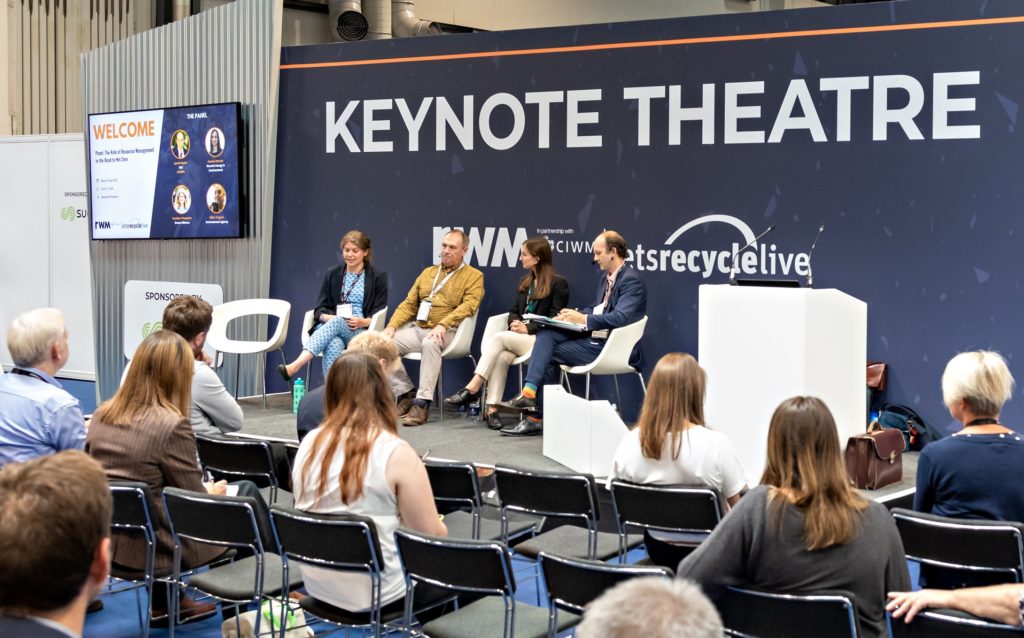During the RWM and Letsrecycle Live trade shows at the NEC, Birmingham, on 14 September, Jacob Hayler, executive director of the Environmental Services Association (ESA), chaired a panel discussion on the role of resource management on the road to net zero.
The panel featured Heather Plumpton, policy analyst at environmental thinktank Green Alliance; Mike Tregent, advisor at the Environment Agency; and Ioanna Kyriazi, senior consultant in waste and resource management at Ricardo.
Asked what would drive investment in circular economy infrastructure for recycling or remanufacturing, Ms Plumpton said the sector required better data.
“We don’t necessarily know at the moment where the materials are in the economy to make that business case or that investment plan,” she said. “We don’t know where the stocks of lithium are going to be or where they are even now.”
Mr Hayler said the government had indicated it was to create a national materials data hub prior to the Covid-19 pandemic, but it had since “disappeared”. He noted similar data hubs already existed in places such as Taiwan.
Ms Plumpton said a national materials data hub was “absolutely essential” for attracting private investment, because “you can’t make a business model without information about what material’s going to be where and when.”
Critical minerals
Looking specifically at critical minerals, Mr Tregent echoed many of Ms Plumpton’s thoughts about the need for a national database to keep track of which materials were in circulation.
Without the data we can’t implement the strategy
- Mike Tregent, Environment Agency
The government published the UK’s first ever critical minerals strategy in July in a bid to bolster the resilience of supply chains and “seize on the economic opportunities of growing industries” such as electric vehicle manufacturing and offshore wind.
Mr Tregent warned the strategy could “fail” without better data. “Initially it’s about how much we have got in circulation, how much is coming in and how much is going out,” he said.
“I think there’s a shared frustration that we really want to get a national materials data hub set up, because without the data we can’t implement the strategy.”
Emissions
The ESA is the trade association for private waste management companies. Looking at the contribution to net zero the waste management sector could make more generally, Mr Hayler said: “We tend to get overlooked in our sector because when emissions get reported they just focus on the landfill bit of the industry. They never notice all the other stuff we do: all the transport, all the recycling, all the treatment.”
Mr Hayler said all the different activities across the waste sector emitted about 35 million tonnes of CO2 in 2018, representing 8% of UK emissions. Within that, recycling, sorting and processing represented the “largest proportion” of those emissions, Mr Hayler said, at around 15 million tonnes.












Subscribe for free